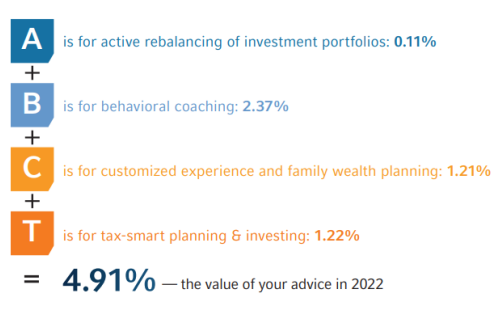
Retirement planning is one of the most important things you will ever do. It can be difficult to know where to start, but it is crucial that you begin planning for retirement as early as possible. There are many factors to consider, such as how much money you will need to cover your costs and what you will do once you retire.
When it comes to retirement planning, there are many things to think about. In particular, you need to consider what you will do once you stop working. Some people choose to travel, while others might move to a different city or country. You could also start your own business, or simply relax and enjoy your free time.
No matter what you choose to do, it is important to have a plan. This way, you can be sure that you are doing something that you will enjoy and that will fit within your budget. Retirement planning is an important part of ensuring a happy and healthy retirement.

There are a few key steps involved in retirement planning. First, you need to assess your current financial situation and work out how much money you will need to cover your costs. This includes things like your mortgage, utility bills, food and drink, and any other necessary expenses.
The earlier you start retirement planning, the better. This is because it gives you more time to save up money and make sure that you are on track to achieve your goals. It also means that you are less likely to have to make last-minute changes to your plans, which can be both stressful and expensive.
So, if you haven’t started retirement planning yet, now is the time to do it. By taking some time to think about your future, you can ensure that you have a happy and healthy retirement.

One of the most important aspects of retirement planning is figuring out how much money you will need to have saved up. This can be a difficult task, as there are many factors to consider. For example, you need to think about how long you expect to live in retirement, what your costs will be, and what kind of lifestyle you want to maintain.
To get an idea of how much you will need to have saved, start by looking at your current expenditure. Make a list of all your essential costs, such as your mortgage or rent, utility bills, food and drink, and transport costs. Once you have a clear idea of your outgoings, you can start to work out how much you will need to have saved.
As a general rule of thumb, experts recommend that you have enough saved up to cover at least four years of expenses. This will ensure that you have enough money to cover your costs even if your circumstances change unexpectedly.
When considering the options for a 401k or other retirement plan contributions or rollovers it is important to make sure you are informed and that is where a fiduciary fee-only financial advisor can help. Independent, fee-only wealth managers and certified financial planners are fiduciary advisors that are required to put your best interest first. This is important because there are many different types of “financial advisors” and when it comes to your retirement nest egg, you want to make the choices right the first time.
a. Your funds stay tax advantaged within your existing plan if permitted by your former employer and you retain the option to rollover the funds to an IRA at a later date
b. Investment options are limited to your former employer’s plan, fees are charged for investment management and 401k record keeping fees
c. If you leave your job between ages 55 and 59½, you may be able to take penalty-free withdrawals. Required minimum distributions (RMDs) may be delayed beyond age 72 if you’re still working.
a. If permitted by your new employer, rolling over your former employer 401(k) retains the tax advantaged status of your funds and avoids penalties
b. This option might make sense for those that are comfortable continuing to invest on their own and are satisfied with the investment options and fees of the new plan
c. Important to review new investment and 401k recordkeeping fees as they can differ significantly from your previous plan
a. Funds directly rolled over into IRA’s retain their tax advantaged status and gain an array of investment options but will not have the ability to borrow against
b. Investors can tap financial advisors for these account types for advice on tax, investment, and estate planning.
c. Important to be aware of investing expenses and compare to 401k fees
a. This option can pose severe tax consequences, as the withdrawal amount is taxed as taxable income and subject to the 10% early withdrawal penalty for those below the age of 55
b. This option is rarely advisable and normally reserved as a last resort
For those looking for alternatives to a 401(k), consider exploring the possibilities below.
Traditional and Roth IRAs
If your employer doesn’t offer a 401(k)—or you are self-employed or a small business owner—you can open an individual retirement account (IRA). These accounts also offer retirement-oriented tax advantages, which differ depending on whether you choose a traditional or Roth IRA.
Even better, you can save in one in addition to a 401(k), though—depending on your income and the type of account you choose—your contributions may not be tax-deductible. Even in that case, however, the money in your account will grow tax-free until retirement.
Although IRAs and 401(k)s offer tax benefits, there are some key differences. With an IRA, the most you can contribute in 2022 is $6,000 a year ($7,000 if you’re at least 50). For 2023, the limit increases to $6,500, or $7,500 if your age 50 or older.
In general, 401(k)s and IRAs have an early withdrawal penalty if you take distributions before age 59½, but there are exceptions to this rule.
With an IRA, the world is your investment oyster. You can invest in just about any security or financial instrument whose value can be measured precisely and daily.
Like 401(k)s, IRAs come in both traditional and Roth versions. The choice between the two IRA accounts typically depends on whether you want to pay taxes now or later.
With a traditional IRA, you deduct the contributions from your taxes today, and you only pay income taxes when you start withdrawing decades down the road.
With a Roth IRA, you don’t get to deduct the contributions from your annual tax bill, but once you start withdrawing, it’s all tax-free. Any earnings or investment growth is tax-free, too. You are also spared the required minimum distributions when you hit age 72, which are mandated for traditional IRAs and 401(k)s.
When deciding between a traditional or Roth IRA, you do have to ask yourself if you’re going to be in a higher tax bracket once you retire and if the tax brackets in the future will bear any resemblance to your bracket today.
If you are self-employed or a small business owner, you may also have the option to open a simplified employee pension (SEP-IRA) if you qualify. SEP-IRAs operate much like traditional IRAs in terms of tax advantages and investment options. They have the additional benefit of higher contribution limits.
Contributions cannot exceed 25% of compensation for the year or $61,000 (for 2022) and $66,000 (for 2023), whichever is less.
If you’re self-employed and successful but were too busy—or too low on cash—to do much about building up a retirement plan earlier in your life, there’s still time to do something to secure your future. A cash-balance defined-benefit plan will let you play instant retirement catch-up.
Many self-employed people find themselves later in life with a high income and very little to show for it in the way of retirement savings. One solution for such a person is a cash-balance defined-benefit plan, where the annual contribution in 2023 could potentially be as high as $265,000.
Finally, there are regular old investment accounts. You can open an account at your preferred financial institution and “contribute” as much as you want or can. Any profit, whether from appreciation or dividends, will be taxed as long-term capital gains if the investments are held for more than one year. This likely means you’ll pay a lower rate than you’d pay on ordinary income.
While contributing to a 401(k) or traditional or Roth IRA has great benefits, like deferred taxes or tax-free growth, annual limits may prevent you from investing enough capital to enjoy a sufficient retirement income later. Supplementing a retirement account with a taxable account invested in an appropriate stock fund and bond fund allocation can supercharge your financial plan and support a desired outcome.
If you’re disciplined enough to ride out the inevitable lows and breathe deeply during the highs, a standard investment account might be the way to go. But they take a lot of effort to maintain, and you may owe capital gains on income growth.

When it comes to retirement planning, it’s important to think about how you’ll spend your time in retirement. You want to make sure you have enough money to cover your costs, but you also want to enjoy yourself. There are a number of things you can do to make the most of your retirement years.
Whatever you do, make sure you have a plan so that you can enjoy your retirement years to the fullest. Speak to a financial advisor to get started on your retirement planning today.
Choosing the best financial advisor that specializes in your specific situation for your 401k decision can greatly benefit your financial plan. Russell Investments estimates that a financial advisor or financial planner may add an estimated 4.91% in value per year. Discussing your 401k rollover options with a wealth advisor or financial planner can make a significant difference:
Value of an Advisor…

We’ll have a conversation about your options. Our first meeting is free of charge and carries no obligation. The introduction meeting’s purpose is to get to know you, your goals, and answer your questions about your 401k rollover and retirement planning. We’ll discuss your options, share our approach, and explore if we’d be a good fit for your wealth management. We’re fee-only fiduciary advisors, so we do not pitch products or rely upon high intensity sales tactics to make commissions.
Fiduciary advisors are required to act in your best interest. What does acting in your best interest mean in practice? For example, it means that if there are two suitable options for a particular investment recommendation, we are required to probe for information, weigh the pros and cons of both options given your specific situation. We then recommend the option that puts your best interest first, not the option that enriches the firm or advisor. We’re able to do this because of our independent, fee-only fee structure. We are not affected by bias that commissions might place on a particular decision. In doing so, we avoid potential conflicts of interest. All of our advisors have first-hand experience in working with large financial institutions that conducted business very differently. This is what led to the creation of Davis Capital Management. Simply put, we do not allow for commissions or bias to affect investment or planning decisions and believe it results be superior outcomes for investors.
Retirement planning is important because it ensures you have enough money saved up to cover your costs in retirement. There are a variety of different retirement plans available, and the best way to figure out which one is right for you is to speak to a financial advisor. If you don’t have enough saved up for retirement, there are a number of things you can do to make the most of your retirement years. Your 401k rollover decision is important to your retirement plan. Aligning yourself with the best financial advisor can have a significant impact on your retirement plan and set you and your family up for a successful retirement. Speak to a financial advisor today to get started on your retirement planning.